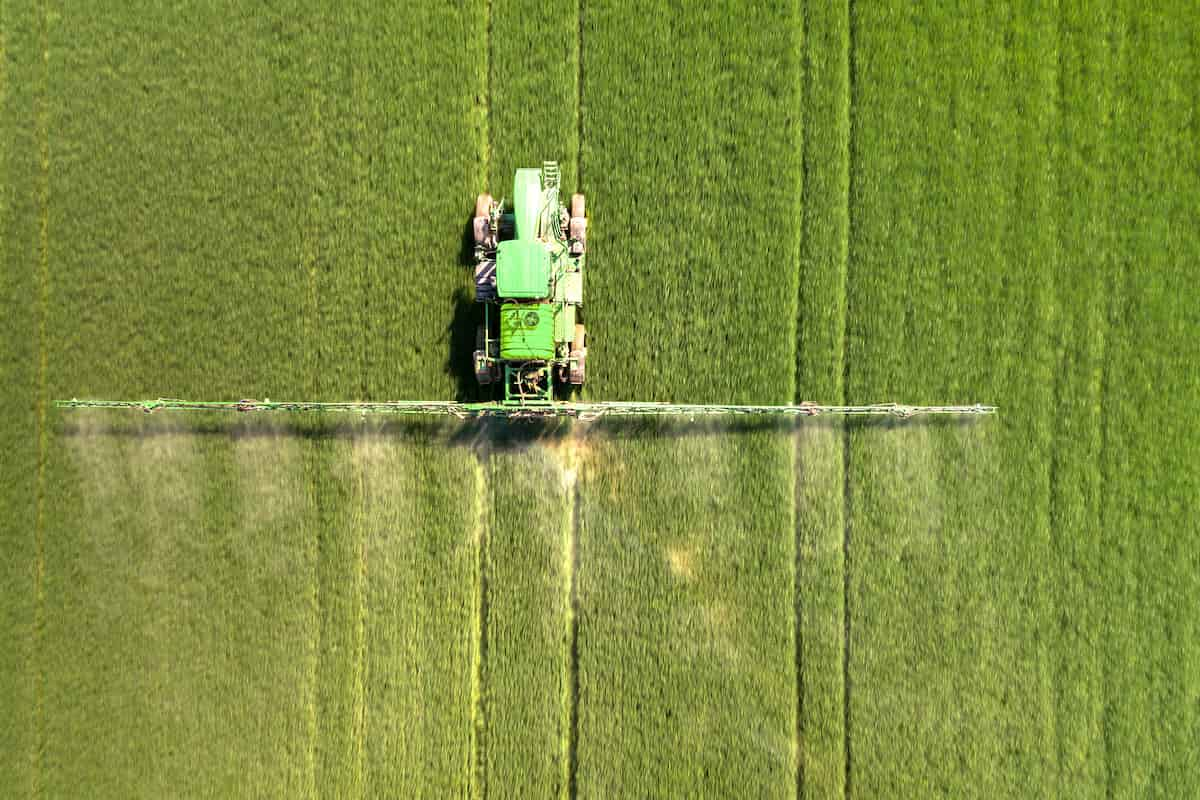Kinetin is a plant hormone that plays a crucial role in agricultural and farming practices. It helps promote cell division, shoot growth, and delay aging in plants, thus leading to increased crop yields. Kinetin is widely used in tissue culture and plant micropropagation, enabling the mass production of disease-free plants in a shorter period.

It is also used in seed germination, root growth, and the stress response of plants. Additionally, Kinetin can improve the quality of fruits and vegetables, making them more resistant to environmental stresses and diseases. As such, Kinetin has become essential in modern agriculture and farming practices.
Kinetin Role in Agriculture
What is Kinetin?
Kinetin (N6-furfuryladenine) is a synthetic hormone promoting plant cell division. It was originally discovered as a compound in DNA with cell division-promoting activity. It was named Kinetin due to its ability to induce cell division when used with auxin.
While it was initially believed that Kinetin was only an artifact produced during isolation procedures, it has since been discovered that it occurs naturally in the DNA of cells in many different organisms. Kinetin is commonly used in plant tissue culture to induce callus formation and regenerate shoot tissues from callus. As such, it has become an important tool in producing new plants from tissue cultures in agriculture and horticulture.
Importance of Kinetin in Agriculture/Farming
- Kinetin is a plant hormone that promotes cell division, shoot growth, and delay in plant aging.
- It is widely used in tissue culture and micropropagation of plants, which allows the mass production of disease-free plants in a shorter period.
- Kinetin is also used in seed germination, root growth, and stress response of plants, leading to increased crop yields and improved plant quality.
- Kinetin helps plants respond to environmental stresses and diseases, making them more resilient and increasing their chances of survival.
- It can also improve the quality of fruits and vegetables, making them more resistant to damage and appealing to consumers.
- As such, Kinetin has become an essential tool in modern agriculture and farming practices, enabling farmers to produce larger quantities of high-quality crops while reducing the impact of environmental stresses and diseases on their crops.
Role Of Kinetin in Agriculture
- Kinetin regulates various plant processes, including cell division, elongation, shoot and root growth, photosynthesis, flowering, and fruit ripening.
- Kinetin is widely used in agriculture as a plant growth regulator, applied to the leaves or roots of plants to promote growth and yield.
- It regulates cell growth and differentiation and stimulates the production of chlorophyll and other pigments in plants.
- Kinetin helps plants respond to environmental stresses and diseases, making them more resilient and increasing their chances of survival.
- Additionally, Kinetin improves the quality and shelf life of fruits and vegetables, making them more appealing to consumers.
Kinetin Effects on Plant Growth and Development
- Stimulates cell division: Kinetin promotes cell division in plants, which leads to an increase in the number of cells and ultimately results in increased plant growth.
- Enhances shoot growth: Kinetin has been shown to increase shoot growth in some plants, particularly in younger plants that have not yet fully developed.
- Delays senescence: Kinetin can delay plants’ aging process, allowing them to remain healthy and productive for longer.
- Promotes leaf expansion: Kinetin can stimulate the expansion of leaf cells, leading to larger and more robust leaves.
- Increases yield: Kinetin has been shown to increase yield in some crops, such as wheat, rice, and soybeans.
- Affects plant morphology: Kinetin can influence the shape and structure of plants, leading to changes in their overall appearance.
- Regulates plant responses to stress: Kinetin can help plants cope with environmental stresses such as drought, high salinity, and extreme temperatures.
In case you missed it: Soil Fertility Fertilizers: The Basics of Understanding Soil Nutrients

Kinetin in Tissue Culture and Micropropagation
- Kinetin is commonly used in tissue culture and micropropagation, as it promotes cell division and tissue growth. It is often combined with other plant hormones, such as auxins, to induce the formation of shoots and roots from plant explants.
- Kinetin is also used to promote the growth of callus, a mass of undifferentiated cells that can produce new plants. In micropropagation, Kinetin can help to increase the number of plantlets produced from a single explant, which can be useful for the commercial production of plants.
- Callus initiation: Kinetin is often used in the initial stages of tissue culture to promote callus formation. Callus is a mass of undifferentiated cells that can be used to regenerate whole plants.
- Shoot proliferation: Kinetin is used to stimulate the proliferation of shoots from callus tissue. This can lead to the production of a large number of identical plantlets.
- Root formation: Kinetin is often used with auxins to induce root formation from tissue culture. This can be useful for propagating plants that do not root easily from cuttings.
- Somatic embryogenesis: Kinetin can induce somatic embryogenesis, forming embryos from somatic cells, which can be useful for plant breeding and genetic engineering.
- Micrografting: Kinetin is sometimes used to promote the growth and development of the graft union. This can improve the success rate of micro grafting.
- Meristem culture: Kinetin can promote the growth of meristem cultures, which produce virus-free plants.
How to Use Kinetin in Agriculture for Plant Growth?
- Kinetin, a plant hormone, promotes plant growth in cultivation. It is usually sprayed, drenched, or irrigated. Kinetin enhances production, uniformly ripens produce, and extends shelf life.
- Use Kinetin in agriculture at the recommended rates and timing for best effects. It is mostly used on annual crops like corn, soybeans, and small grains, but it can also be used on permanent crops like fruit trees and vines.
- Kinetin effects are localized. It can be applied early in the growing season before plants flower to maximize its effects.
- Kinetin increases root growth, leaf size, and color and reduces drought and heat duress. It controls plant growth in many foods and environments.
What Effect Does Kinetin Have on Plant Growth?
- Kinetin is a plant hormone that regulates plant growth and development, including shoot and root growth, leaf formation, flowering, and fruit ripening.
- It promotes cell division by stimulating the synthesis of DNA and RNA and regulates cell expansion by stimulating the production of enzymes that control cell wall synthesis and expansion.
- Kinetin has positive and negative effects on plant growth, promoting shoot and root growth at low concentrations and inhibiting shoot growth while promoting root growth at high concentrations.
- It also affects leaf formation, flower development, and fruit ripening, with different effects at different concentrations.
In case you missed it: Benefits of Neem Cake Fertilizer: How it Differs from Other Composts

Conclusion
Kinetin is an important part of agriculture because it helps plants grow and develop, increases output, and makes them less sensitive to drought and heat. Its ability to control different parts of plant growth makes it an essential tool for farming and a promising area for more study.
- Feed Your Flock for Less: Top 10 Tips to Save on Chicken Feed
- Ultimate Guide to Ossabaw Island Hog: Breeding, Raising, Diet, and Care
- Hatching Answers: The Top 10 Reasons Your Chickens Aren’t Laying Eggs
- Eggs and Economics: Breaking Down the Cost of Raising Backyard Chickens
- Defend Your Greens: Proven Methods to Keep Iguanas Out of Your Garden
- Ultimate Guide to Cinnamon Queen Chicken: A Comprehensive Guide for Beginners
- Ultimate Guide to California Tan Chicken: Breeding, Raising, Diet, Egg-Production and Care
- Ultimate Guide to Marsh Daisy Chicken: Breeding, Raising, Diet, and Care
- 10 Types of Chicken Farming Businesses You Can Start for Profits